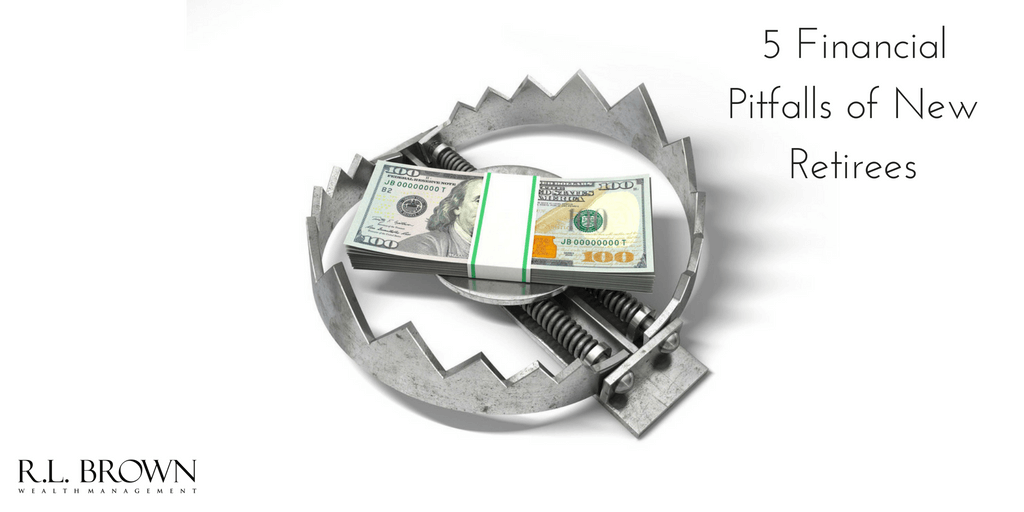Establishing a 401(k) through an employer is a very important first step for young investors. But before you simply set one up, walk away and let your investments go on autopilot, you should be aware of the following major mistakes that are commonly made by 401(k) investors without even realizing it:
Cashing out your 401(k) after a resignation or job change should be avoided at all costs. Trust me, the penalties you’ll incur aren’t worth the short-term gain. The options after separating from an employer usually are as follows: leave the money in the account, transfer it to your new employer’s 401(k) plan, transfer it into an IRA, or liquidate your investment.
If you withdraw funds from your 401(k) before you hit age 59 1/2, you’ll be required to pay a 10% penalty to the government, as well as taxes on the withdrawal. That will most likely result in thousands of dollars of your hard-earned money down the drain. Also, your money will no longer have the advantages of tax-deferred growth.
I’ve heard plenty of excuses for why people decide to cash out: pay off debts, invest in real estate, finance home improvements, purchase a vehicle…the list goes on. But almost none of them are worthy enough of short changing your retirement fund, which was established as a long-term savings plan, not a short-term investment.
Even if the amount in your 401(k) is relatively small, it can still go a long way come time for retirement. Let’s say you have $20,000 in your account and keep that sum invested for another two decades. If your investment grows by an average of 10% annually, it multiply to almost $135,000 by the time you’re ready to retire. If you continue to earn 4% of that per year in retirement, it will give you more than $5,000 per year, or close to $450 per month.
Instead of letting the money sit in a 401(k) account for years after you’ve left your previous job, roll it over into a new 401(k) account or into an IRA as soon as possible so it can earn you more compounded interest, and thus build a healthier nest egg.
If you leave your job, it’s often best to roll over any 401(k) money into your new 401(k) account or into an IRA. Few of us have pensions to look forward to these days, and the average Social Security retirement benefit was recently only about $16,000 per year. Let any money you have in your 401(k) keep working to build you a more comfortable retirement.
The later you wait start saving for retirement, the less money you’ll have to enjoy during your golden years. While you probably already know this, it may become more powerful to show you through an example.
If you were to start contributing $10,000 per year to your 401(k) at age 45, you’d accumulate $545,000 at age 65, based on an 8% annualized rate of return. On the other hand, if you’d contributed $1,200 per year from age 25 to 44, you’d reach age 65 with more than $843,000 in retirement funds.
That’s how valuable early contributions are to your long-term wealth accumulation–an extra $24,000 invested starting at a younger age can generate nearly $300,000 in retirement savings.
So if you’re putting off investing, there’s never a better time than now to start contributing to a retirement account. Even a small percentage per year can make a huge difference when your golden years are upon you.
Even after taking that first important step of establishing a 401(k) account, you still need to be wise about how your funds are invested.
If you don’t choose a specific investment option for the contributions you make to your employer-sponsored retirement plan account, the plan itself will usually choose a default option on your behalf. Sometimes the manager of your plan will automatically spread contributions across plan options to create a reasonable mix of assets. But it’s possible the default plan options will produce returns that are unable to keep up with the rate of inflation. For this reason, it’s important to tailor your investments to your individual needs so that you can fit them into to your other financial resources and come up with the best overall investing plan.
The Bottom Line: It’s good to be aware of some of the major 401(k) mistakes so you can do your best to avoid making them. If you ever get discouraged or confused about your 401(k) situation, it’s best to consult a financial professional before making any rash decisions.







